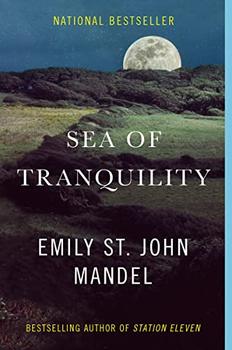Book Club Discussion Questions
In a book club? Subscribe to our Book Club Newsletter!
Please be aware that this discussion guide will contain spoilers!
-
What are some of the defining characteristics of society in each of the different time periods/centuries during which the novel takes place? What about how people live, work, and interact stays the same over time in this depiction of our future, and what changes?
-
Did you identify most with any of the main characters in the novel—Edwin, Mirella, Gaspery, or Olive? What about their story resonated with you?
-
Does the novel offer a clear explanation with regards to Vincent's role in making the video clip from the forest?
-
If you were in Gaspery's shoes, would you have changed the past to save Olive and help Edwin? How do you think he felt about the consequences of his decisions? Did you think he did the right thing, despite the agreements of his training?
-
If you were in Olive's shoes, would you have gone back home at Gaspery's warning? What suffering and gratitude did she feel from having changed her fate?
-
Between Olive's book Marienbad and the violin video, which piece of art holds more of the story together? How does the prescience of one and the ambiguity of the other affect those who encounter the pieces?
-
In one of her lectures, Olive posits an alternative to the egotistic fear of our own demise: "What if it always is the end of the world?" (p. 190). In what ways does the book reaffirm that idea, especially through the ability to interfere with time?
-
How do the characters who live on the moon colonies feel about Earth? And what role does the moon play for those on Earth, especially Gaspery? How are the two "homes" for humans oppressive and/or abundant?
-
After returning from war, Edwin notes about his mother: "It wasn't her fault that the world she'd grown up in had ceased to exist" (p. 218). For which other characters is this true?
-
In what ways do colonization and its many variations stretch their influence through time in the novel? Is one form seen as more righteous or justified than others in different periods?
-
Have you ever had a feeling of being "transported" in time, or an out-of-body/déjà vu experience? How do the novel's descriptions of such moments—the flashes of light, the auras of sound, etc.—line up with your own memories or feelings?
-
The sections of the book set in the future depict a world of simulation that is being talked about more in real-life scientific and philosophical circles. How does this novel's depiction of a possibly simulated world align with your imagination of it? What do you make of the idea that "A life lived in a simulation is still a life" (p. 246)? Would you change anything about your life now if you knew it wasn't "real"?
-
Edwin's brother's friend Thomas offers a view of the world where mankind is meant to tame nature for the sake of civilization. How does that viewpoint play out in the novel?
-
Discuss the overlaps among religion, spirituality, the supernatural, and science in this novel. How do the characters navigate those distinctions?
-
What do all of the encounters with the video clip and violin have in common? What does that snippet of art do for the people who receive it, even without seeking it?
-
Both Emily St. John Mandel's novel Station Eleven and this novel deal with a global pandemic. In what ways do the two pandemics differ? In what ways are they similar? How do you think Mandel's writing was affected by actually living through a global pandemic?
Unless otherwise stated, this discussion guide is reprinted with the permission of Vintage.
Any page references refer to a USA edition of the book, usually the trade paperback version, and may vary in other editions.
